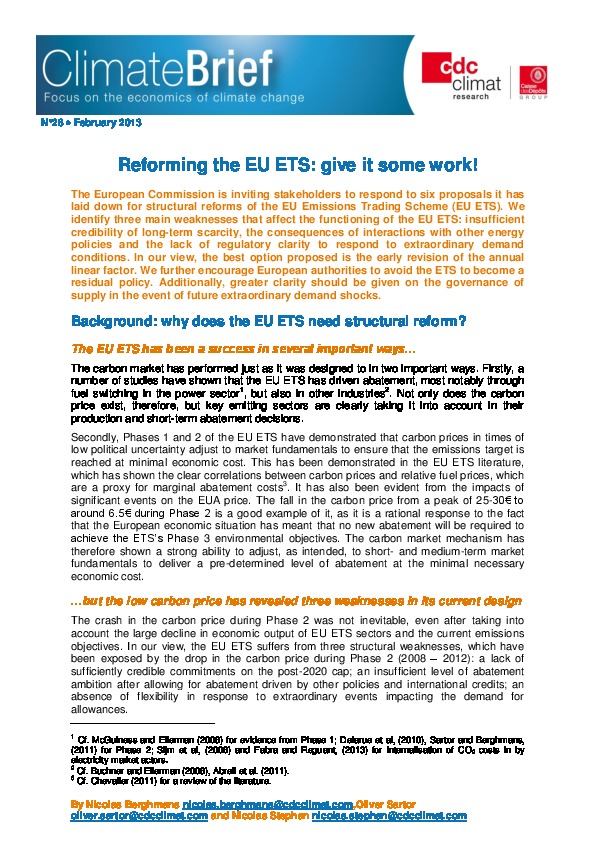Reforming the EU ETS: give it some work!
By Nicolas Berghmans, Oliver Sartor and Nicolas Stephan, I4CE
The European Commission is inviting stakeholders to respond to six proposals it has laid down for structural reforms of the EU Emissions Trading Scheme (EU ETS). We identify three main weaknesses that affect the functioning of the EU ETS: insufficient credibility of long-term scarcity, the consequences of interactions with other energy policies and the lack of regulatory clarity to respond to extraordinary demand conditions. In our view, the best option proposed is the early revision of the annual linear factor. We further encourage European authorities to avoid the ETS to become a residual policy. Additionally, greater clarity should be given on the governance of supply in the event of future extraordinary demand shocks.
